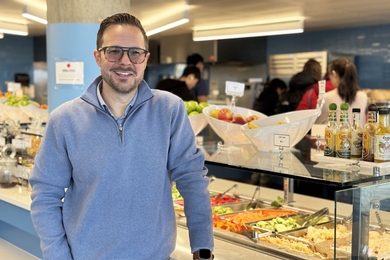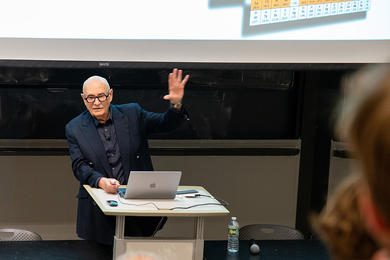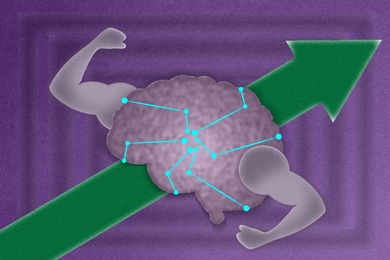At a time when biologists are faced with more ethics and security concerns than ever, three organizations--MIT, the J. Craig Venter Institute in Rockville, Md., and the Center for Strategic and International Studies in Washington, D.C.--today announced a new project to examine the societal implications of synthetic genomics, a new field involving the development of viruses and cells using designed and engineered DNA.
The 15-month study will explore the risks and benefits of this emerging technology, as well as possible safeguards to prevent abuse, including bioterrorism. It will be jointly directed by Drew Endy of MIT, Robert M. Friedman of the Venter Institute and Gerald L. Epstein of CSIS.
"The project will serve as a model for policy makers, scientists and engineers who are evaluating potential 'dual-use' research," said Endy, an assistant professor in MIT's Biological Engineering Division and co-founder of the MIT Synthetic Biology Working Group.
"The field of synthetic genomics has the potential for groundbreaking scientific advances, including the development of alternative energy sources, and the production of new vaccines and pharmaceuticals," said J. Craig Venter, founder and president of the Venter Institute. "Synthetic genomics has the potential to enable significant societal, environmental and medical benefits, and with this study we are trying to help ensure that outcome."
Funded by a $570,060 grant from the Alfred P. Sloan Foundation, the multi-organization effort will engage scientists and policymakers to better understand the potential risks and benefits associated with synthetic genomics.
"The scientific and security communities have the responsibility to prepare for the opportunities and misuse that may arise from any new technology," noted Epstein, of the Homeland Security Program at CSIS.
The study, expected to be completed by July 2006, will include a series of workshops analyzing technological and societal concerns. In addition, a meeting including policymakers, scientists and the media will be conducted to discuss oversight, governance and monitoring issues. Study results, including a suite of evaluated policy options, will be reported in numerous scientific and policy journals and will be disseminated broadly to the public.





